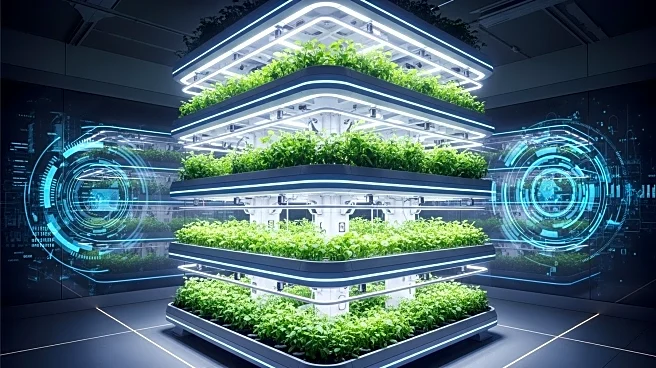What's Happening?
The Vertical Farming World Congress is set to open in Amsterdam, highlighting the industry's current challenges and potential. Richard Hall, Chair of FoodBev Media, emphasizes the need for vertical farming to be recognized as a contributor to global food systems rather than a threat. The industry faces significant barriers, including energy supply issues, cost control, and uneven regulation. Despite these challenges, vertical farming is gaining traction with products like leafy greens, salad mixes, microgreens, and strawberries leading the market. The sector is also exploring new crops such as coffee and rice, although spreading resources too thin could undermine competitiveness.
Why It's Important?
Vertical farming represents a significant shift in agricultural practices, offering solutions for urban food production and sustainability. Its growth could impact food security and reduce the environmental footprint of traditional farming. However, the industry's success depends on overcoming energy and regulatory challenges. If recognized and supported at the policy level, vertical farming could receive equal access to incentives and grants, fostering innovation and expansion. This could benefit urban areas with limited space for traditional agriculture, potentially transforming food supply chains and reducing dependency on imports.
What's Next?
The industry must focus on securing stable and affordable energy sources, possibly through partnerships or renewable energy integration. Companies need to establish competitive leadership by focusing on a few proven crops. As the industry matures, common standards and a shared language could accelerate growth. Government recognition and support will be crucial in providing the necessary framework for vertical farming to thrive. The upcoming congress may serve as a platform for stakeholders to address these issues and collaborate on solutions.









